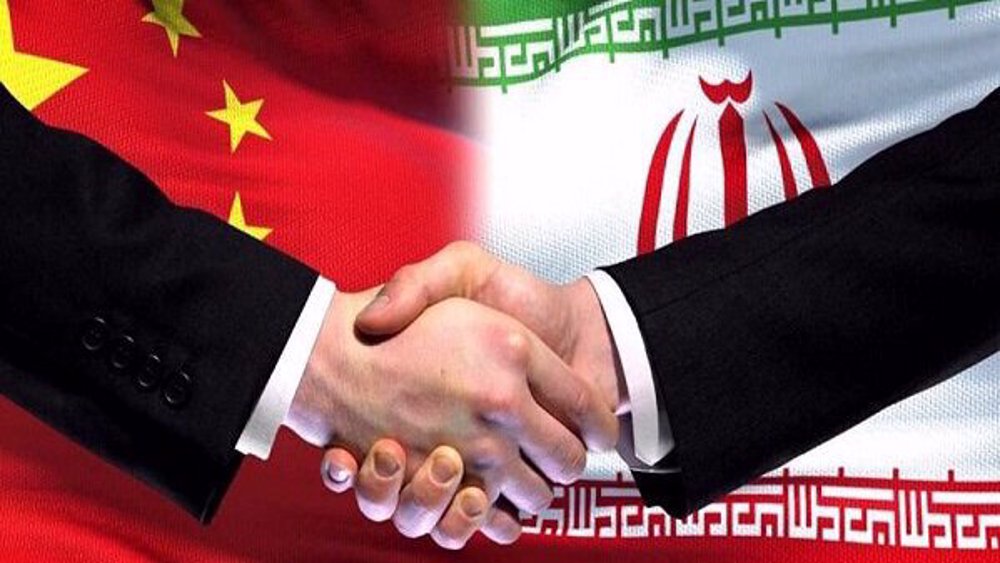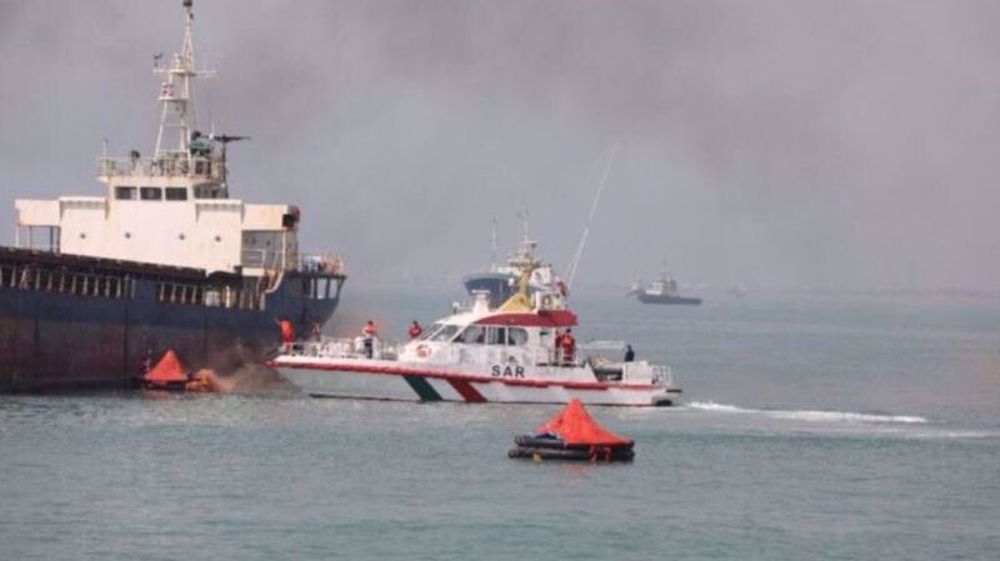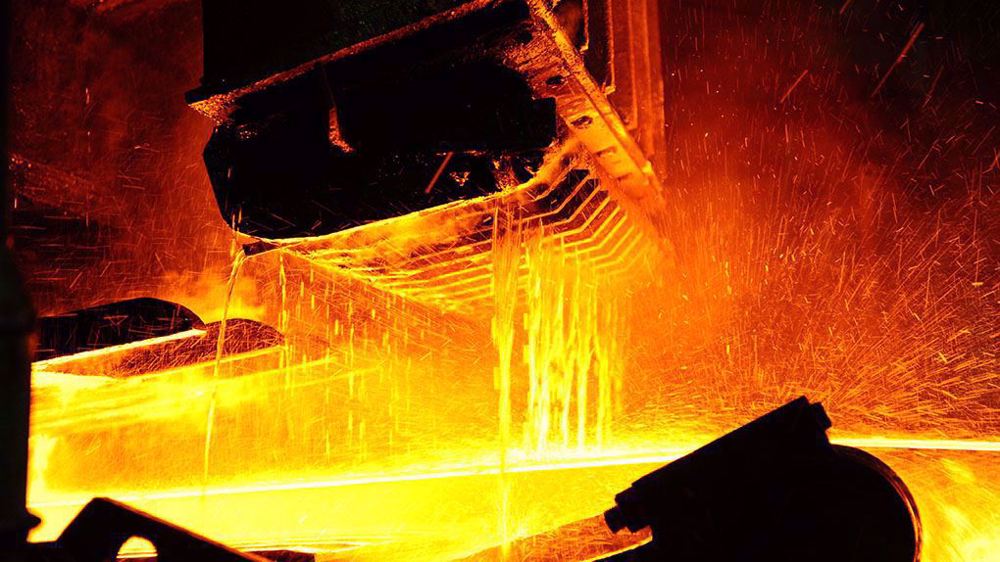As Iranians hold nerves, US seeks to scare off trade
The US government is trying to scare commercial flights away from the Iranian airspace, raising the stakes in its “maximum pressure” campaign which has failed to bend the nation.
The Federal Aviation Administration (FAA) on Tuesday warned airlines to exercise caution while flying over the Persian Gulf and Gulf of Oman, where tensions have spiked recently following US deployment of new military assets.
“There is an increasing inadvertent risk” to flights in the area, said a new directive to US airlines and other commercial flight operators.
In June, the US barred American-registered aircraft from flying over Iranian-administered airspace in the Persian Gulf and the Gulf of Oman after the Islamic Revolution Guards Corps (IRGC) shot down an intruding American military surveillance drone.
Iran’s Civil Aviation Organization (CAO) rejected the warning, stressing that the Iranian airspace was totally safe. CAO spokesman Reza Jafarzadeh also brushed off claims that international flights were diverting to other routes.
Siavosh Amir Mokri, who heads Iran Airports and Air Navigation Company, said last month major international airlines were returning to Iranian skies after a brief hiatus.
Observers believe the US government’s new warning – the third of its kind since May - might be a sign that international airlines are paying little heed to the alerts.
Regional airlines are already reeling from President Donald Trump's travel bans targeting mainly Muslim countries, as well as his earlier ban on laptops on board US-bound flights from airports in the Middle East and North Africa.
Middle Eastern carriers have blamed Trump’s travel restrictions for a downturn in demand on US routes.
The Persian Gulf is home to some of the world's top long-haul carriers such as Etihad, Emirates and Qatar Airways, as well as low-cost carriers which the US sees as serious rivals and a threat to its aviation industry.
By all accounts, there is a premium for escalating tensions – something the US has aptly been doing in recent months in the Persian Gulf.
The world was taken aback in May when Trump ordered B-52 nuclear-capable bombers, an aircraft carrier strike group and additional Patriot missile batteries to be deployed to the Persian Gulf, citing unspecified Iranian threats.
It was followed by a series of mysterious attacks on oil tankers in the waters, which Washington tried to blame on Iran. The attacks, however, were dismissed by Iranian officials and many international observers as false flag operations serving US intentions.
The US has lived in a state of hostility with Iran for decades, but it has taken an extremely hard line with the resource-rich country under the Trump administration.
In May 2018, President Trump pulled out of a 2015 international nuclear agreement which had opened Iran to international business, but presented US companies little stakes because of self-imposed American sanctions.
Trump has been pushing for a new deal, demanding Iran make a range of sweeping concessions which would make the country accessible to the United States, like before the 1979 Islamic Revolution when the former shah was an important ally of Washington.
Since May last year, Iran has faced a steadily tightening embargo and severe banking sanctions, with the US trying to deprive Iran of oil revenue, the lifeblood of its economy.
On Monday, Washington warned Greece and Mediterranean ports against helping an Iranian-operated tanker after the vessel left Gibraltar following seizure by British marines.
The detention of the tanker near Gibraltar on July 4 led to a weeks-long confrontation between Tehran and the West and heightened tensions on international oil shipping routes through the Persian Gulf.
Iran's ensuing impounding of a British oil tanker in the Strait of Hormuz prompted the US to call for the formation of a maritime security coalition.
The US is trying to project its campaign as a bid to secure the Persian Gulf, but "the Europeans argue that Washington created the problem in the first place by trying to kill off Iran’s oil exports", the New York Times wrote this month.
The sanctions have fueled inflation and weakened the national currency, the rial, US authorities hope it would fuel public unrest and lead to the collapse of the Islamic Republic.
Trump and other officials have repeatedly boasted of how Iran’s economy has allegedly been battered under the sanctions. “Their Economy is dead, and will get much worse. Iran is a total mess!” Trump tweeted last month.
However, Iranians are hunkering down rather than buckling. The US pressure, meanwhile, is generating a groundswell of resentment because the sanctions have shattered their expectation that dealing with the West would yield economic advantages for Iran.
On Tuesday, top security official Ali Shamkhani said Tehran should never have signed the nuclear deal in the first place.
In an interview with NBC News, Shamkhani said there were people in Iran who felt that signing the 2015 nuclear pact, known as the JCPOA, was a mistake.
Asked if he was one of those people, Shamkhani said, "Yes. … I'm just following the viewpoints of my nation, the people of Iran."
The secretary of Iran's Supreme National Security Council denounced the US as the aggressor and prime source of tension in the region and warned it to "act with wisdom".
He noted that the Trump administration's "maximum pressure" campaign against Iran would not bring Iran to heel or bring it back to the nuclear negotiating table.
"The sanctions campaign is not for negotiation, it's for making us surrender," said Shamkhani. "As long as this approach is taken by the United States, Iran will never ever seek negotiations."
Shamkhani said the Iranian people have long lived with Western sanctions, citing the mood on the street as the obvious proof of the failure of the US policy.
"Just walk the streets of Tehran and see how energetic our people are and you will realize that what the US has been trying to achieve has not materialized," he said.
Hamas dismisses US accusation of obstructing ceasefire in Gaza
Gaza solidarity protests sweep US universities despite police crackdown
Tension flares in India after Modi's anti-Muslim hate speech amid elections
Iran, Pakistan to bring peace, stability to region through cooperation: Raeisi
'Regrettable': Iran slams EU sanctions, says bloc satisfying criminal Israeli regime
Hamas to survive as Israel fails to destroy command centers, tunnels: US media
April 22: ‘Axis of Resistance’ operations against Israeli occupation
N Korea holds first ever 'nuclear trigger' drills, simulates counterattack












 This makes it easy to access the Press TV website
This makes it easy to access the Press TV website